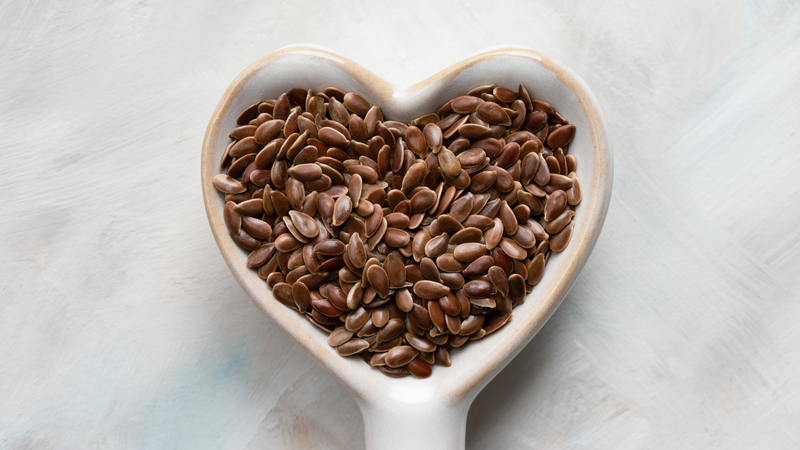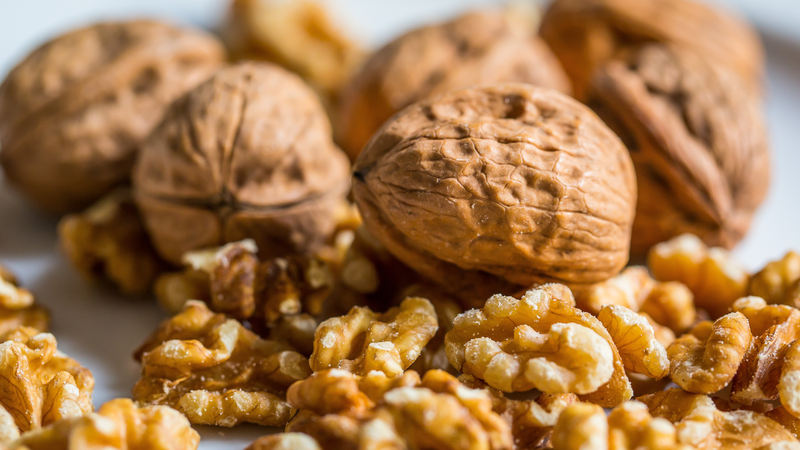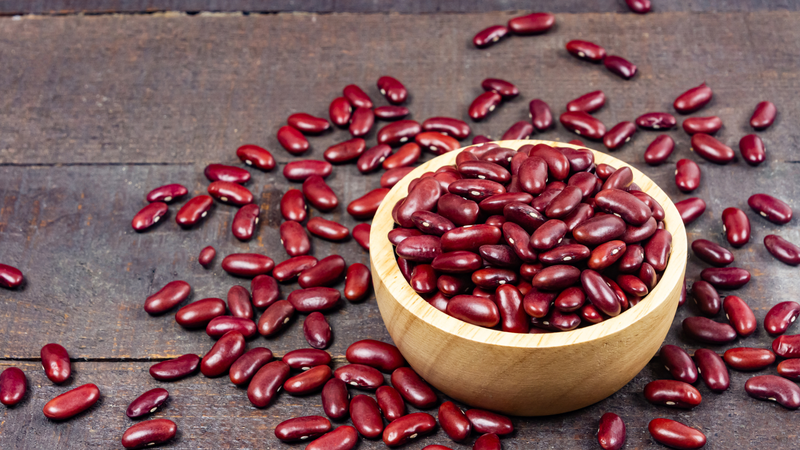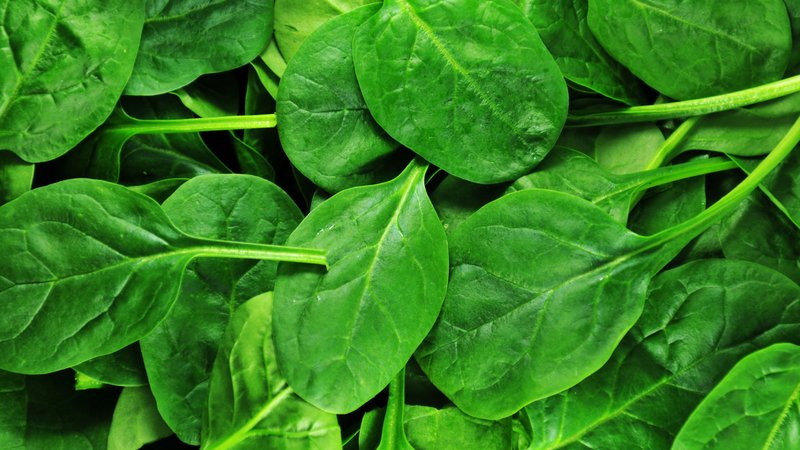Omega-3 is an important source of nutrition for the body, especially for the cardiovascular and nervous systems. In addition, the diversity of omega-3 in different foods from animals to plants makes it easy to receive natural omega-3 sources and choosing the right food plays a certain role.
In most cases, omega-3 is mainly extracted from seafood such as salmon, tuna, …. However, plant sources possessing diverse sources of omega-3 are no less competitive with unexpected health benefits. Let’s join Long Chau Pharmacy to check out 15 non-fish omega-3 rich foods that you should know to effectively protect your health.
Flaxseeds
Flaxseeds are considered a large “storehouse” of omega-3 in most non-fish omega-3 sources that many people do not know. Flaxseeds contain up to 6,388 mg of ALA omega in 1 ounce, meeting the body’s needs twice as much as usual. In addition, many studies have also shown that supplementing flaxseed oil for a period of time can reduce the risk of cardiovascular disease, prevent high cholesterol, as well as ensure the necessary source of nutrients for a healthy body.

Omega-3 in flaxseed helps prevent cardiovascular complications effectively
Canola oil
Canola oil is commonly used in most meals and is recommended by the American Heart Association for cooking thanks to its rich source of omega-3. A teaspoon of canola oil can provide up to 1.28 g of ALA to the body. Adding canola oil contributes positively to building a diverse diet.
Chia seeds
Chia seeds have many unexpected health benefits thanks to their rich nutritional content, including fiber, vitamins and omega-3. According to many studies, thanks to their high ALA content, adding chia seeds can improve many pathological problems such as:
- Improving high triglyceride levels, HDL-C levels in the blood;
- Controlling blood sugar tolerance;
- Anti-inflammatory thanks to regulating cell activity, inflammatory markers.
There are many ways to add chia seeds to ensure health such as eating them with yogurt, salad or making smoothies will be reasonable choices.
Brussels Sprouts
Brussels sprouts are a type of green vegetable that is rich in many surprising nutrients such as vitamin K, vitamin C and even rich in omega-3, which brings many health benefits. According to research, adding cruciferous vegetables such as Brussels sprouts can reduce the risk of cardiovascular disease by up to 16% thanks to the abundant source of ALA. There are many ways to prepare this vegetable such as stir-frying, cooking, boiling to make the most of the nutrients that Brussels sprouts bring.
Walnuts
Walnuts have about 2,542 mg of omega-3 per 1 ounce of nuts, helping to ensure the necessary nutritional needs of the body as well as prevent some disease risks. According to a 2011 study, using walnuts in the diet helps increase concentration, memory and cognition, and improve symptoms of Alzheimer’s disease. There are many ways to take advantage of the nutrition provided by seeds by using them as a snack, side dish with yogurt, smoothies are the most reasonable choice.

Omega-3 in walnuts helps improve memory and cognition in patients
Hemp Seeds
Hemp seeds are also considered a rich source of omega-3 with 6000 mg of ALA per 1 ounce serving. Thanks to the abundance of ALA, hemp seeds bring many health benefits, especially cardiovascular health, such as preventing blood clots, supporting heart function recovery after angina. Therefore, adding hemp seeds as a spiritual food, eaten with yogurt helps enhance the flavor and provide essential nutrients for the body.
Perilla Seed Oil
Perilla seed oil has many applications in food as well as showing a unique cultural feature, especially in Korea. Perilla seed oil contains abundant ALA and DHA to help improve cardiovascular and nervous health for healthy body development. Perilla seed oil can be processed into fried dishes, enhancing the flavor of the dish extremely effectively.
Seaweed extract
Seaweed is one of the foods rich in omega-3, including DHA and ALA. Therefore, seaweed is considered a particularly suitable source of nutrition for vegetarians in preventing the risk of chronic diseases as well as improving general health. Supplementing seaweed as a side dish, cooking soup or rice rolls is a delicious and effective solution.
Japanese soybeans (Edamame)
Japanese soybeans are known for their diverse nutritional source from fiber, protein to the amount of omega-3 needed for the body. Just half a cup of Japanese soybeans can provide the body’s daily nutritional needs, specifically 0.28 g of ALA. There are many variations to make the dish more attractive such as boiled or served with salad.
Kidney beans
Kidney beans are considered a food source with diverse nutrients such as protein, plants, fiber, as well as the ability to meet up to 15% of the body’s daily omega-3 needs. In addition, the amount of folic acid in kidney beans has anti-inflammatory properties and reduces the risk of many diseases, including cardiovascular disease.

Omega-3 in kidney beans helps meet the body’s daily nutritional needs up to 15%
Soybean oil
Soybean oil is a recommended food and is commonly used in most dishes in Asian countries. In terms of omega-3 content, this oil contains 0.92 g of ALA per teaspoon. In addition, soybean oil also contains a variety of vitamins and minerals necessary for the body such as vitamin K, vitamin B9, magnesium, … to help maintain a healthy body.
Grain sprouts
Grain sprouts are an ingredient in cereal grains with a rich, fatty flavor that helps enhance the flavor of side dishes such as salads, yogurt or smoothies. The nutritional composition of grain sprouts is very diverse, including B vitamins such as vitamin B1, vitamin B6 and folic acid. In terms of omega-3 content, it is equally rich, containing up to 6.91 g of ALA in 1 cup serving.
Spinach
Spinach is also considered a food rich in omega-3 that is not fish that you should know because it contains up to 370 mg of ALA in 100 g of serving. Besides omega-3, it also contains fiber, vitamins and minerals that are necessary to help the body stay healthy and prevent the risk of disease effectively if supplemented sufficiently and in the recommended dosage.

Spinach is not only rich in Omega-3 but also contains other nutrients that help maintain a healthy body.
Mustard Seeds
Considering the amount of omega-3 in mustard seeds, it can be seen that 300 mg per teaspoon is a number that can bring many unexpected health benefits, as well as effective cooking directions. Mustard seeds can be used in meals with cruciferous vegetables, acting as a flavoring agent to make the dish more flavorful.
Tofu
Tofu is also a food rich in omega-3 similar to soy products. Besides the abundant omega-3, tofu also contains minerals and vitamins necessary for the body. Therefore, adding tofu to the diet as a main dish or side dish will be a reasonable choice to ensure maximum health benefits.
It can be seen that the source of nutrition from Omega-3 provides an important role for health. Through 15 non-fish Omega-3 rich foods, consumers have more new choices for their health as well as meet the dietary needs and characteristics of each culture in the world.





